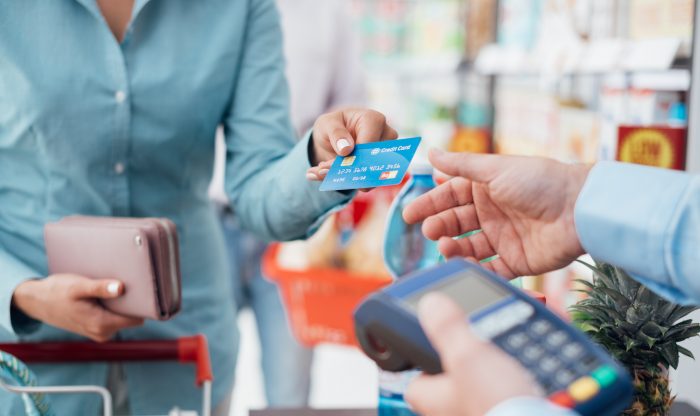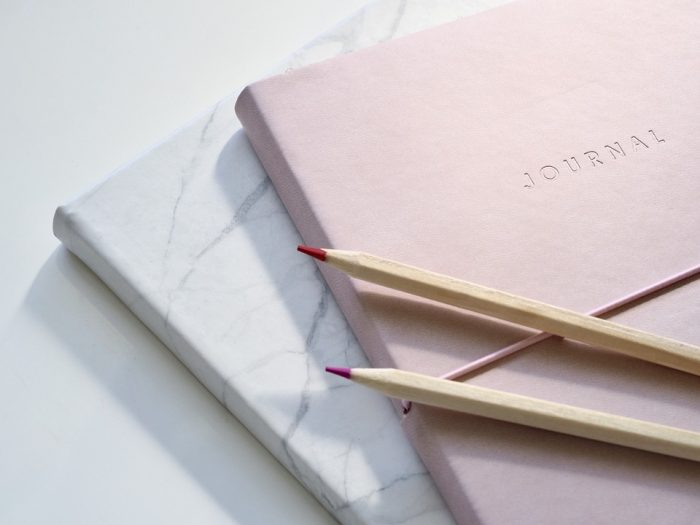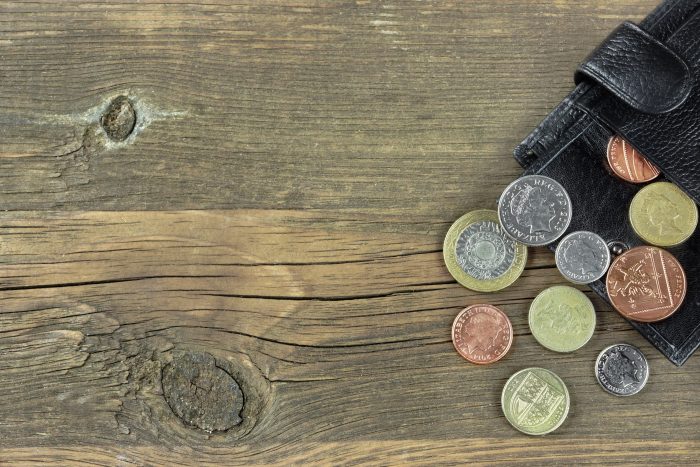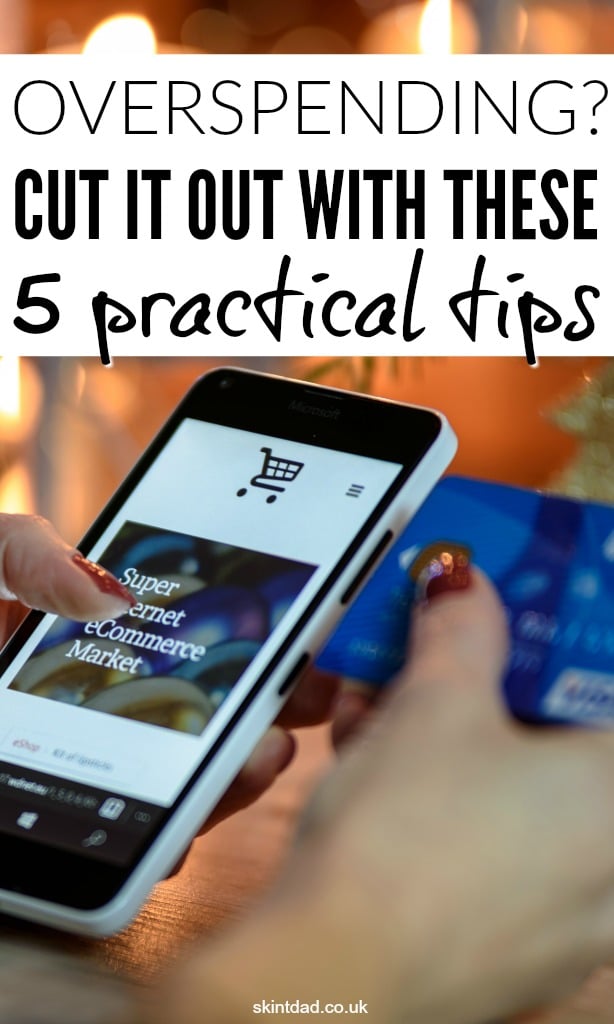Whether you need to cut back to clear debt, or you need to save, not parting with your cash can be hard to do, but it is possible to stop spending money!

£10 sign up bonus: Earn easy cash by watching videos, playing games, and entering surveys.
Get a £10 sign up bonus when you join today.
Join Swagbucks here >>
Whether it’s down to bad luck or being a bit too extravagant, spending beyond your means is how debt starts.
Once you’re on this road, it can be really hard to get back on track. It often involves a complete overhaul of your attitude towards money and spending.
We had to make some big changes when our debt really started to pile up.
How to stop spending money
We had to find ways to quickly cut back on our outgoings so we could see an immediate difference in our budget and have more money left over.
Here are some tips we’ve learnt on our debt-free journey to stop overspending!
Think about your spending triggers

Assuming that your overspending is totally within your control, you’ll probably be able to see some patterns that motivate you to buy.
These can vary from person to person, but some of the common factors include:
- emotional triggers like when you’re feeling stressed or wanting to treat yourself after a bad day
- things relating to your past such as wanting to give your family a better life than you had yourself
- peer pressure and wanting to follow suit with friends or “keep up with the Joneses”
- being overly tired so not taking a little extra time to plan meals etc
- lifestyle habits including sugar (too many cans of coke?) or even cigarettes, alcohol, gambling or gaming
- mental health issues which see you not manage money as well
Understanding your personal triggers for overspending is the first step to changing your habits and attitude to money and getting back on track financially.
Have a budget (and stick to it!)

This might sound obvious but, in reality, sticking to a budget is often one of those things that started off as a good intention at the beginning of the month, but didn’t go as you planned by the end of it.
The whole idea of a budget is to allocate a certain amount of your income to a particular category.
Using your budget, you’ll be able to see exactly where your money is going on a month to month basis. At this point, highlight areas that are doing the most damage to your finances.
It can be time consuming (and a bit scary in the early days!) but it’s one of the best ways to get a handle on where you’re at and what you need to start changing.
Prioritise your most important outgoings

Keeping up with essential outgoings such as rent/mortgage payments, paying utility bills, debt repayments and putting food on the table is your main priority.
This is the first thing you need to work out in your monthly budget.
Once you’ve got money put aside for them, you can then focus on other payments for savings or other expenditures.
Everything beyond your priority bills is a “want” rather than a “need”.
Hopefully, you’ve got some spare cash left after paying priority bills, so it’s all about what you choose to do with what’s leftover.
Live below your means

The usual advice is to live within your means. But, depending on your situation, this might not be enough to steady the ship that much.
When we got into a lot of debt, we started living below our means instead.
We cut back as much as we possibly could on our spending. This meant making sacrifices and changing our attitude towards our money.
It really is as simple as spending less money than you have coming in.
It’s a big adjustment, but it’s one that you absolutely need to start making if you’re currently living beyond your means on a regular basis.
Focus on cash (or e-wallets), not cards

If you’re used to handing over your bank card and rarely deal in cash transactions, you’ll know how easy it is to spend a lot more than you realise.
This is why it’s good to get into the habit of paying in cash as much as you can.
When you’re forced to physically hand over the money for something in cash, it forces you to think more about whether you really need this item. Plus, more importantly, when you look in your purse and only see a few quid left, it makes you question if you can really afford it.
You need to check your budget and withdraw a set amount of money that you can comfortably allow yourself to spend on non essential things that month.
Once this money is gone, don’t be tempted to start using cards again.
The idea is that you only spend what you’ve withdrawn. You then have to make decisions within that mini budget as to what you really want to buy with it.
If you’re not sure what you’re spending out on each month, try to keep a spending diary for a while so you can start to track your habits.
Automate your cash flow

If you want to really take some of your disposable income out of the equation, then hide it!
Set up a standing order to send it to a savings account each month. Or you could try skimming to save lots of small amounts here and there.
This way, you can resist temptation altogether as the money isn’t in your bank account to spend or be withdrawn.
It’s amazing how quickly you can adjust to not having the money at your disposal!
If you’ve saved your money in an easy access account, you can always get at if you really need it. However, in the meantime, it’s staring at you in the face.
Prevent overspending
I’m not saying to never spend a penny – it’s almost impossible.
In fact, I’m not even that much of a fan of having forced “no spend month”. The idea of having no spend days over a week or a month is to reduce how much money gets spent.
Trouble is, if you know you’re planning one, you can spend more before in preparation, or save you cash and blow it at the end.
Instead, it comes down to allowing a budget for what you plan to do.
I know I need to do a top-up shop at the supermarket – I have to spend the money. It’s easy to grab one of the small trolleys, but I’ll end up putting more stuff in it, as there is space.
What I do instead is pick up a basket. It can fit a lot less, and it gets heavy carrying it around, so I buy less.
You could even go one step further and ditch the basket altogether. Go to the shop for only things you can carry – it really does help you stop spending money!
Over to you – have you got any other tips to tackle how to stop spending money?

- Where kids eat free this summer 2024 - 9 July 2024
- The Sun £9.50 Holiday – guide to a cheap UK break - 9 July 2024
- How to get FREE food and drinks – apps and other ideas - 9 July 2024

Leave a Reply